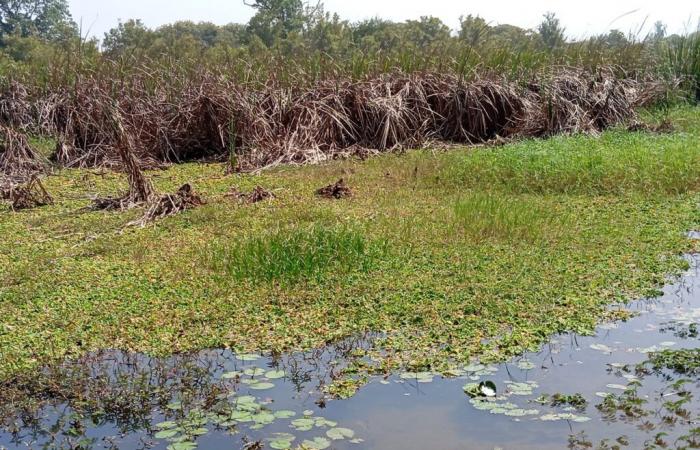The Casamance River, a vital lung for thousands of families living from fishing and agriculture, is today threatened by an unprecedented ecological crisis. The invasion of invasive aquatic plants, such as typha and water lily, as well as increased silting, particularly around Sare Yoba Diega and its surroundings, seriously compromises the future of this watercourse.
In Kegnekegne Bato, the consequences of these phenomena are particularly visible. Fishing activities, which constitute the main means of livelihood of the inhabitants, are experiencing a drastic decline. The populations, faced with increasingly low catches, say they are discouraged and are calling for urgent intervention.
A call for help to save the river
Local fishermen are not the only ones sounding the alarm. Members of the Association of Journalists Reporters of Kolda (AJRK), sensitive to the scale of the crisis, took the plea to the authorities and environmental defenders. Their objective: to generate mobilization around the protection of the Casamance River. “This river is an inestimable wealth, not only for Casamance, but for all of Senegal. If nothing is done, entire generations will be deprived of their means of subsistence,” said a member of the AJRK.
Solutions to consider
Faced with this ecological emergency, several avenues are being considered by environmental experts and defenders:
Control of aquatic plants: It is urgent to implement cleaning campaigns to eliminate typha and water lilies which suffocate the water and reduce areas suitable for fishing.
The fight against silting: Development work, such as dredging, could be considered to restore the river bed and improve water circulation.
Community involvement: Local populations must be at the heart of solutions, particularly through training on sustainable techniques for managing aquatic resources.
An uncertain future without rapid action
The Casamance River, symbol of life and abundance, is today at a decisive turning point. If concrete actions are not taken quickly, the consequences could be irreversible, not only for ecosystems, but also for the human communities that depend on them.
Local populations, members of the press and environmental defenders are calling for rapid and concerted intervention. The salvation of the Casamance River could well be a reflection of the collective capacity to protect one of Senegal's natural treasures.






